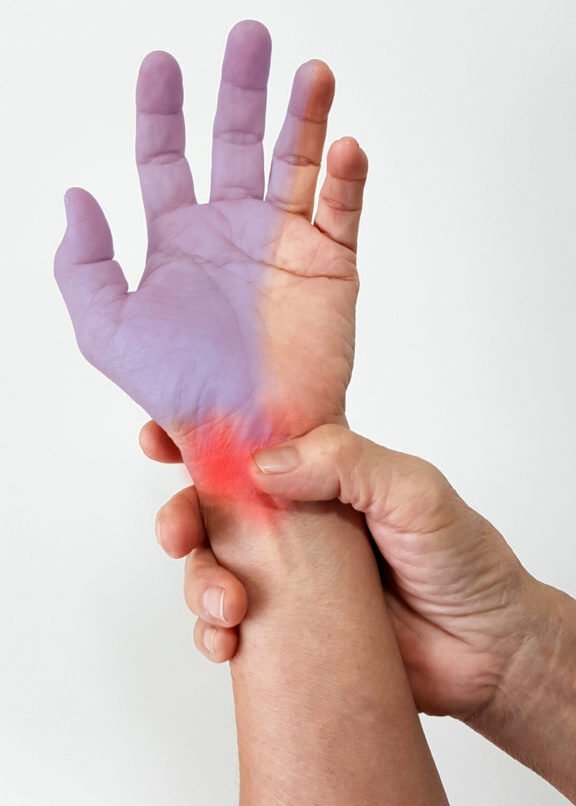Carpal Tunnel Syndrome
Contact UsWhat Is Carpal Tunnel Syndrome?
The carpal tunnel is a small space made up of bones and ligaments that holds the median nerve and some tendons that control the fingers’ movement. When the tunnel becomes too tight, the median nerve can be damaged or irritated, causing symptoms like pain, weakness, tingling, and numbness in the hand and wrist.
There are various causes of carpal tunnel syndrome, such as repeating hand and wrist movements, injury to the wrist, pregnancy, and certain medical conditions like diabetes and rheumatoid arthritis. To treat carpal tunnel syndrome, one can use wrist splints, physical therapy, medications, and sometimes surgery to relieve the pressure on the median nerve.


What Are Common Signs And Symptoms Of Carpal Tunnel?
- Numbness or tingling in the hand and fingers: People with CTS often experience numbness or tingling in the thumb, index, middle, and ring fingers. This sensation can sometimes extend up the arm.
- Pain or discomfort: Pain or discomfort in the hand, wrist, or forearm is also common with CTS. The pain may be intermittent or constant and can range from mild to severe./li>
- Weakness in the hand: People with CTS may also experience weakness in the hand, making it difficult to grip objects or perform certain activities.
- Difficulty with fine motor skills: CTS can also make it challenging to perform tasks that require fine motor skills, such as typing or buttoning a shirt.
- Nighttime symptoms: Many people with CTS experience symptoms at night, which can interrupt sleep and cause discomfort.
- Worsening symptoms over time: Without proper treatment, CTS symptoms may worsen over time, making it increasingly difficult to perform daily activities.
It’s important to note that these symptoms can also be caused by other conditions, so it’s important to consult a healthcare provider for an accurate diagnosis.

Common Causes Of Carpal Tunnel Syndrome?
- Repetitive hand and wrist movements: Jobs or hobbies that require repetitive hand and wrist movements can cause CTS. For example, typing on a keyboard for long periods or using power tools can lead to CTS.
- Injury to the wrist: Fractures or sprains of the wrist can cause swelling, which can compress the median nerve and lead to CTS.
- Certain medical conditions: Medical conditions such as diabetes, rheumatoid arthritis, and hypothyroidism can increase the risk of developing CTS.
- Genetics: Some people may be more predisposed to developing CTS due to their genetic makeup.
- Pregnancy: Hormonal changes during pregnancy can cause fluid retention, which can compress the median nerve and lead to CTS.
- Obesity: Being overweight or obese can increase the risk of developing CTS.
It’s worth noting that many people with CTS have more than one contributing factor, and in some cases, the cause may not be clear. If you’re experiencing symptoms of CTS, it’s important to speak with a healthcare professional to determine the cause and the best course of treatment.
How We Take Care Of Your Carpal Tunnel Syndrome?
- Customized splinting and physical therapy
- Medication management and minimally invasive procedures
- Patient education on ergonomic principles and self-care strategies
- Collaborative care with multidisciplinary teams
- Surgical consultation when needed.
Request Appointment
Availability
Monday - Sunday
Hours
Phone
(604)968-6557
Address
4536 Clinton Street, Burnaby, BC V5J 2K5, Canada
